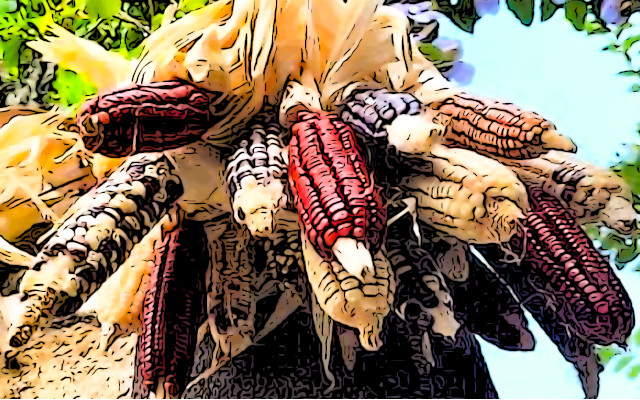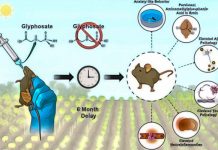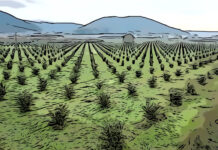On December 20, 2024, the panel established under the US-Mexico-Canada Free Trade Agreement (USMCA) ruled in favor of the United States in its dispute over the bans on the import and cultivation of GMO corn for food use introduced in Mexico in 2023.
The self-determination of nations with respect to the protection of ecosystems, biodiversity and public health risks giving way to the dictates of free trade. And the clauses for the negotiated resolution of disputes, which recur in modern Free Trade Agreements, are thus beginning to show their impact.
1) Mexico and corn. Culture and biodiversity
Corn, or ‘maize’, has its roots in Mesoamerica, the region encompassing present-day Mexico and Central America, where it has been cultivated since about 10,000 years ago through selection of wild grasses called ‘teosinte.’ This plant still occupies a prominent position in Mexico’s cultural, culinary and economic heritage.
The agrobiodiversity of corn in Mexico is expressed in the cultivation of 64 species of which 59 are native. (1) Some of these species have also adapted over the millennia to grow in arid and semi-arid soils, without the need for fertilizers, thanks to the ability to fix nitrogen present in the atmosphere through microorganisms. (2)
2) Production and import of corn
Mexico corn production has varied between 26.5 and 27.5 million tons in recent years. And it is so important that it takes place in all of its 32 states. Imports are themselves significant, peaking at 18 million tons in 2023 (Statista 2025 data).
USA corn exports to Mexico have reached 30 percent of its total exports, in 2021/2022, with the main fodder and industrial fates. Both of which are excluded from the import ban under dispute here.
Mexican cuisine and diet are among other things based on the use of white corn, an essential ingredient in several dishes that moreover accounts for only 1 percent of corn production in the USA.
3) GMO corn for food use, the Mexican bans
Mexico’s president Andrés Manuel López Obrador, in office until September 30, 2024, had adopted two presidential decrees to protect native corn biodiversity and human health:
-the first decree (2020) had introduced a general restriction on the use of GMO corn in the production of basic foods (i.e. tortillas and masa, a typical dough for the preparation of many traditional dishes);
– the second decree (2023) then provided for its gradual replacement which should involve the ban on imports for food use, the stop to renewals of concessions for sowing, progressive exclusion from other industrial uses.
Mexico’s imports of GMO corn should therefore be limited prospectively to broken or fragmented seeds unable to germinate. Subject to new risk assessments that take into account the objectives of the legislation.
4) USMCA, the controversy
In August 2023 the United States requested to establish a dispute settlement panel with Mexico under the U.S.-Mexico-Canada Free Trade Agreement (USMCA, developed on the basis of NAFTA, North America Free Trade Agreement), Article 31.
Civil society organizations from Mexico and the United States presented to the panel, in March 2024, written opinions and scientific documentation in support of maize agrobiodiversity in Mexico, with evidence of the risks of GMO contamination. (3)
The panel – chaired by the Swiss Christian Häberli – ruled on 20 December 2024. Stating, as expected, that the Mexican bans are not justified by an adequate and demonstrated risk assessment nor by international standards. (4)
5) Agrobiodiversity at risk
Conahcyt– the National Council of Humanities, Sciences and Technologies – conducted a molecular analysis of 5,304 samples of native corn in Mexico, from 2000 to 2023.
Twelve percent of the samples contained genetically modified sequences, with peaks of 12% and 35% between those from the states of Mexico City and Puebla.
‘It has been observed that since the release of genetically modified corn in the country (from 2005 to 2012) there was a notable increase in the presence of transgenes in the states of Jalisco, Michoacán, Oaxaca, Puebla and Sinaloa’, the study reports. (5)
The Council stressed the need to develop short-term biosecurity strategies for the protection of native corn, in accordance with traditional agricultural knowledge, beliefs and biculturality of each of the country’s regions. These arguments were presented at the USMCA panel in support of Mexico’s strategy.
6)‘Sin Maíz No Hay País’
‘Sin Maíz No Hay País’– a popular saying that expresses the value of corn in Mexican civilization – is the name of a non-profit association established in 2007 to protect the agrobiodiversity and cultural identity of the country, the rights of farmers and peasants, and public health. The association has also collected 125.000 signatures against transgenic corn in Mexico. (6)
Mexico’s president Claudia Sheinbaum recalled the motto ‘Sin Maíz No Hay País‘, in her first public appearance after the USMCA (or T-MEC) panel ruling, on December 21, 2024. Promising that by February 2025, Parliament would pass a new law to protect biodiversity and public health with respect to GM corn. (7)
7) Constitutional reform hypothesis
The Mexican presidential decree that is subject of the USMCA controversy could in fact be elevated to constitutional status. This initiative, already presented by López Obrador, was also approved by the Chamber of Deputies in August 2024.
The reform of the Constitution would allow Mexico to:
-declare maize an element of national identity, free from transgenic genetic modifications (Article 4.2);
-establish the State’s obligation to ensure the conservation and sustainable management of national biodiversity (Article 4.5)
-define the State’s obligation to promote the conditions for integral rural development and to ensure ‘optimal use of GM crop-free land and maize seeds’ (Article 27, Section XX).
8) Possible defeat
On January 7, 2025 Mexico’s President Claudia Sheinbaum, in a press conference, showed a very different approach to the issue at hand. She declared that the ‘new legislation’ – a reform of the 2023 presidential decree, mind you – could restrict the import and planting bans to GM white corn only.
‘What is closest to our hearts is the protection of native white corn in our country for several reasons. Yes, for health reasons, but above all for reasons of protection of biodiversity.’
Biodiversity offered by the other dozens of native varieties, the evolution of their populations made possible by the sharing of seeds between millions of farmers (milpas), the rights of indigenous communities thus risk disappearing from the radar, to give way to the financial oligarchies that dominate the world. In the Americas, as in the Old Continent (9,10).
#Égalité
Dario Dongo
Footnote
(1) Miranda Lipton. Mexico is treating corn from the US as a threat. Here’s why. National Geographic. February 27, 2024 https://tinyurl.com/5dsm7hz4
(2) Van Deynze A, Zamora P, Delaux PM, Heitmann C, Jayaraman D, et al. (2018). Nitrogen fixation in a landrace of maize is supported by a mucilage-associated diazotrophic microbiota. PLOS Biology 16(8): e2006352. https://doi.org/10.1371/journal.pbio.2006352
(3) Jeny Pascacio. United States-Mexico-Canada Agreement Sides with US in GM Corn Dispute Without Evidence That It Is Not Harmful to Health. Avispa medium. January 2, 2025 https://tinyurl.com/2h33kkbm
(4) UNMCA. Mexico – Medicines related to genetically modified corn. Mex-USA-2023-31-01. Decision 20 December 2024 https://tinyurl.com/khxkkjy7
(5) González-Ortega, E. et al. (2017). Pervasive presence of transgenes and glyphosate in maize-derived food in Mexico. Agroecology and Sustainable Food Systems, 41(9–10), 1146–1161. https://doi.org/10.1080/21683565.2017.1372841
(6) Without Corn There Is No Country https://sinmaiznohaypais.org/
(7) Presidency of the Republic. Government of Mexico. Press release 21.12.24. https://tinyurl.com/5ayvbmmv
(8) Andrés García S. Sheinbaum reaffirms legislation against transgenic products. Infobae. 7.1.25 https://tinyurl.com/dwf5xtzt
(9) Dario Dongo. The tentacles of finance on food sovereignty and our food. GIFT (Great Italian Food Trade). 31.3.24
(10) Dario Dongo. NGTs, new GMOs. Letter from organic operators to EU ministers. FT (Food Times). August 12, 2024
Dario Dongo, lawyer and journalist, PhD in international food law, founder of WIISE (FARE - GIFT - Food Times) and Égalité.








